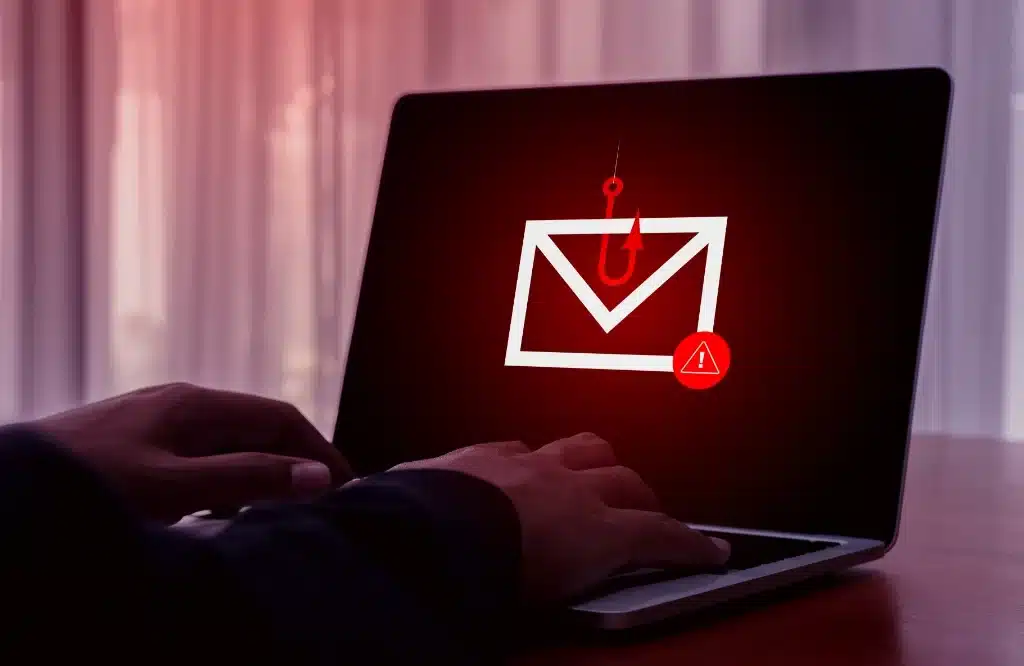
Cybercriminals often adapt their scams to fit seasonal activities. For example, throughout November and December, there is a massive rise in holiday scams each year.
Warm weather means vacations and seasonal sales, leading to loads of money being spent and countless promotional and booking emails going out — the perfect hunting grounds for phishing scammers. These cybercriminals use summer-related themes to lure victims into clicking malicious links, revealing sensitive information, or downloading harmful files.
Unfortunately, phishing attacks aren’t just an email threat anymore. They can come through text messages, social media messages, fake websites, and even phone calls. Recognizing the warning signs is your first line of defense against these scams and protecting your personal information.
Common summertime phishing attacks
These scams are centered around Christmas and other holiday shopping to prey on seasonal spenders, but in the summer, tactics change. While fake seasonal sales are also utilized, the primary focus shifts to people who are spending big on vacation and leisure activities.
Scammers impersonate high-profile travel platforms like Airbnb and Booking.com as well as ticketing platforms because they know there is an influx of users in the summer.
Examples of summer phishing scams
During the summer, you might notice an increase in:
- Vacation rental scams: Fake booking confirmations or “too-good-to-be-true” offers for beach houses or cabins that require immediate payment
- Fake airline and travel deals: Emails claiming to offer discounted flights, seat upgrades, or urgent itinerary changes, often with links to malicious sites
- Festival and event tickets: Spoofed websites or emails promoting summer concerts, sports events, or festivals that trick you into paying for fake tickets
- Fake shipping notifications: Messages about delayed or missed deliveries, especially if you’ve been ordering travel gear or summer essentials online
- Seasonal job offers: Scams targeting students or part-time job seekers with fake summer employment opportunities that request personal or banking information, or implicate the victims in money laundering
These scams prey on excitement, urgency, and the desire to secure a good deal before it’s gone. They also push the victim to act out of fear, using tactics like claiming a booking or reservation didn’t go through, or that the victim needs to rebook a flight.
Scammers are hoping that you won’t think twice when trying to save your vacation and will turn over your credit card and identity information without doing due diligence.
How to avoid phishing attacks this summer
Staying alert doesn’t mean giving up your summer fun, it just means taking a few extra precautions before clicking or replying. You can use email filters, secure web browsers, and other anti-phishing solutions, but no tool is perfect. When it comes to phishing scams, the best defenses are awareness and attention to detail.
Here are some simple ways to protect your email and SMS inboxes:
- Verify before you click: If you receive an email about a booking, ticket, or package, go directly to the company’s official website instead of using links in the message.
- Be discerning about quality: Check the grammar and, if applicable, the images and links in an email. If there are mistakes or poor quality assets, the message is likely not from a legitimate company, which would have quality controls in place for official communications.
- Check the sender’s address: Look for slight misspellings or unusual domain names that can signal a fake email.
- Be wary of urgent language: Messages that push you to act “immediately” are a red flag. Take a moment to confirm their legitimacy, especially if they threaten lost items, money, or bookings.
When it comes to suspicious websites:
- Inspect every site before paying: If you aren’t familiar with a website promising a great deal, or the site looks suspicious, check other pages on the website to determine its legitimacy. If these other pages (About Us Page, Contact Us Page, etc.) are missing or have grammar mistakes and broken links/images, these are big red flags.
- Use multifactor authentication (MFA): Even if your password is stolen, MFA can stop attackers from accessing your email and banking accounts.
- Keep devices updated: Install the latest security patches for your operating systems, browsers, and apps.
For ultimate peace of mind and an ironclad defense against phishing and other types of cyberattacks, partner with SpectrumWise. Our experienced consultants will deliver top-tier cybersecurity solutions and manage them for you to maximize your protections.
